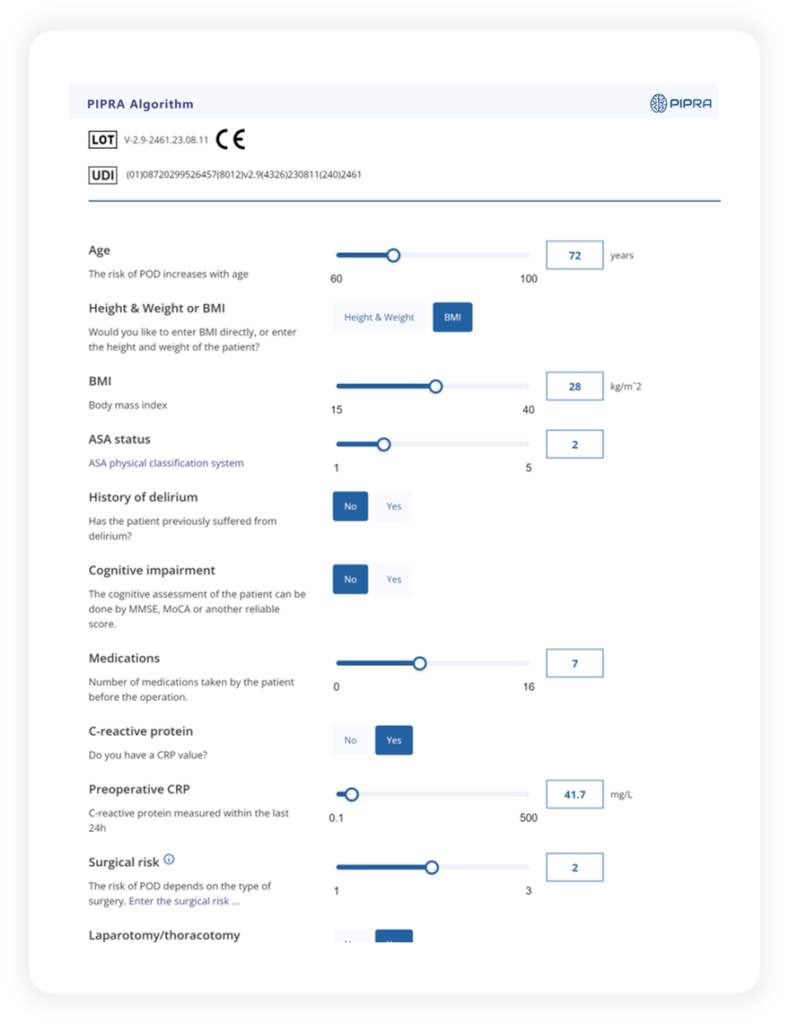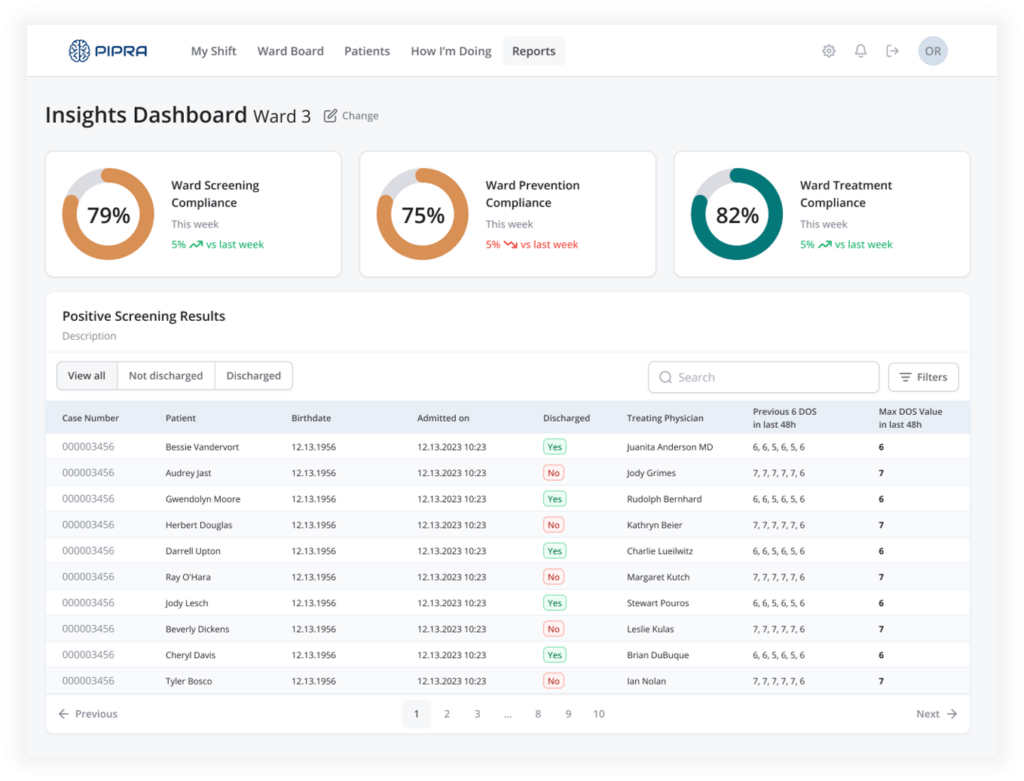Most delirium programs fail or success is unclear. We guarantee success with our
technology-enabled delirium management suite and get delirium under control, forever.



AUTOMATED AI DELIRIUM RISK ASSESSMENT
Use our automatic CE-marked pre-warning system to identify at-risk patients. The system has been trained on the world’s richest database of delirium patients. Validated in multiple studies.
Works for elective and emergency, surgical and non-surgical patients aged 60+. Fully automatic – using routine data collected at admission.

AUTOMATIC ALERTS
The system automatically alerts hospital via their preferred channels and tools (e.g. EHR system, email, etc.) and informs them which patients need delirium prevention and where time & effort for delirium prevention can be saved.

TARGETED PREVENTION
Nurses (and/or anaesthesia) perform tailored interventions (prevention & screening), only in patients where it provides value, thus eliminating unnecessary work.
Nurses get free access to our delirium hub with a wealth of resources for prevention.

TAILORED REPORTS WITH INSIGHTS
The delirium responsible, nurse leads and other key staff get automatic reports with key insights such as screening & prevention compliance, incidence, length of stay over time, etc. allowing them to make informed adjustments in the hospital’s delirium management workflows

29% reduction; Dodsworth et al., Age & Ageing, 2024
33% reduction: Dodsworth et al., EDA conference paper, 2024
You have a delirium concept in place but you are not 100% sure what is its real impact? As a first step, we evaluate the current delirium incidence in your hospital, considering the screening compliance and risk profile of your patient population. All this goes into a report that allows you to make informed decisions on the next steps.
Together with your IT team, we are handling the technical setup of the delirium management suite and its integration to your EHR system. We will also be jointly planning the go-live of the suite.
Once the technology is set up, we run our launch program to smoothly introduce the delirium management suite in your hospital and apply any necessary changes in the work processes. During that time we will be very closely working with you and support that staff as needed (hypercare), provide training etc. As an outcome we have saved time for nurses and less delirium cases.
After the 12-week launch program, we will transition to long-term use of the delirium management suite, where our involvement becomes gradually less. From now on, delirium incidence remains low. We’ll still have periodic check-ins with you to see how we can best support you on an ongoing basis.
Together with our hospital partners, we are working hard to develop a new delirium risk assessment tailored to patients in the ICU, allowing hospitals to better plan and allocate staff resources to patient in the ICU.
Delirium screening requires precious time from nurses and physician. We are working on a device that fully automates delirium screening and does that on a continuous basis.
Please select your location to continue.